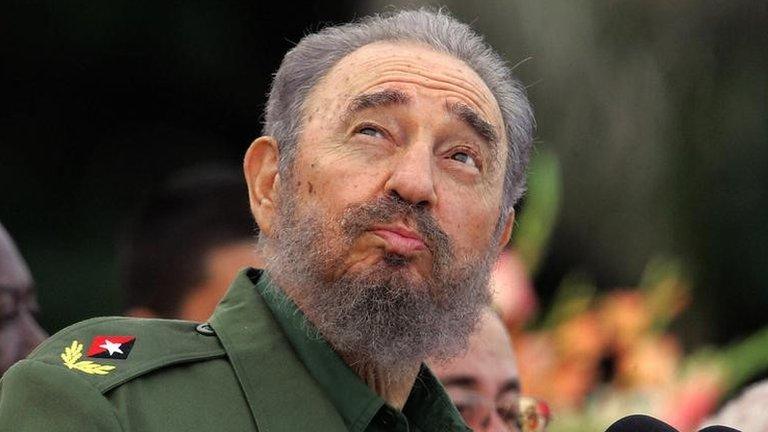Fidel, Russia and rekindled Cold War memories
- Published
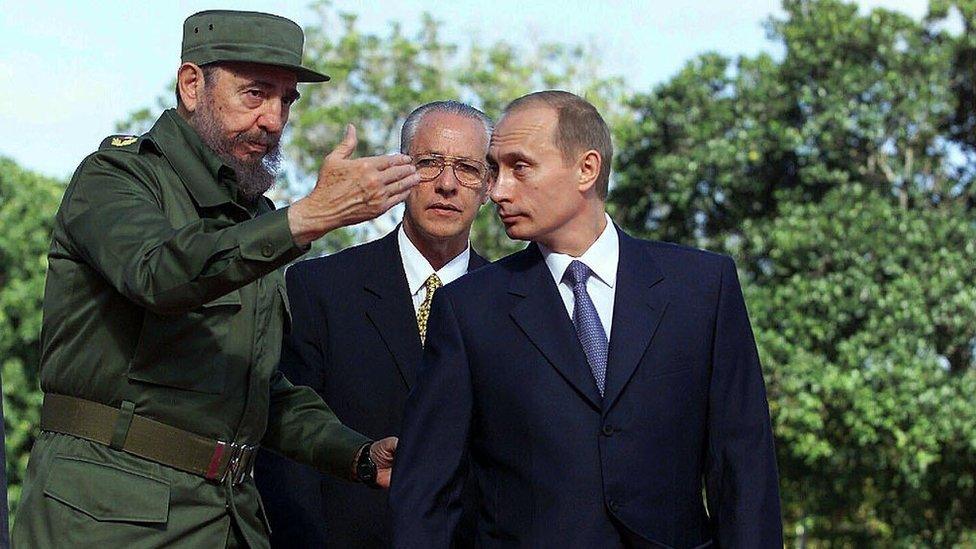
Fidel Castro welcomed Vladimir Putin when the Russian leader visited Cuba in 2000
I once travelled around a key site in the Cuban missile crisis on a cart pulled by oxen with a guide called Stalin.
As we rattled through the mud alongside lush, green fields, I remember trying to imagine Soviet missiles travelling the same route five decades earlier, minus the oxen.
It seemed incredible that this quiet corner of tropical Cuba could once have been at the heart of a global stand-off, that could so easily have escalated into nuclear disaster. It was the huge slabs of concrete from the old missile silos that brought it home to me. They are still there, abandoned in the woods.
Fidel Castro was one of the main players in that crisis in 1962, and his death last weekend marks a symbolic end to the nearly very hot Cold War that then divided the world.
You would think all of that was old history. This month marks 25 years since the Soviet Union imploded and even the United States and Cuba have restored relations now. Fidel's death is like the final, rusty nail in the Cold War coffin. Or is it?
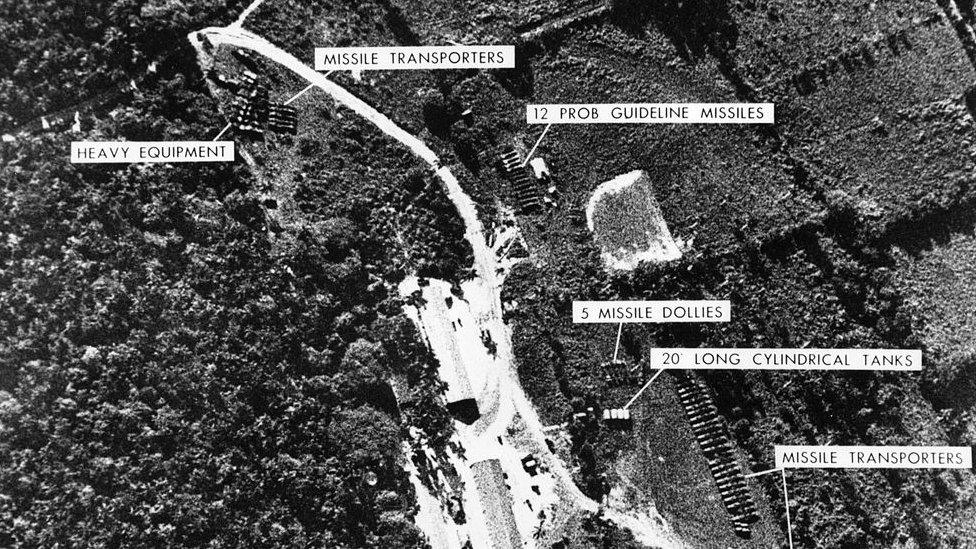
The building of Soviet ballistic missile bases in Cuba led to the 1962 Cuban missile crisis
I now live in Moscow, and it sometimes feels like we're heading back to those days with worrying ease. Russia's president has openly lamented the Soviet collapse as a tragedy and in recent years Vladimir Putin has been busy trying to reassert Russia's right to be reckoned with as a global power.
Despite - or perhaps because of - the country's very real economic problems, he has made a big show of military might: from tank parades across Red Square, to devastating airstrikes in Syria.
It has all been accompanied by loud talk of enemies abroad who, according to Mr Putin, won the Cold War then proceeded to "humiliate" Russia and impose their "victor's values" around the world. Now Moscow and its values are making a comeback, Mr Putin says.
With all the sabre-rattling by politicians, it is reassuring that there is still no real hostility here at street level.
Just as in Cuba, people spent decades hearing how the big, bad United States was plotting to destroy their revolution - but longed to travel there, watched the films and listened to the music. Here, too, anti-Western feeling is officially cultivated. And for now it is superficial.
So I was not surprised that one polling agency recorded a big drop in such feelings only this week. That matches a sudden shift in the official rhetoric here since Donald Trump, a potential ally, won the race for the White House.
When Mr Putin addressed the nation this Thursday, his usual talk of "enemies abroad" was noticeably muted. He said he hoped to "normalise" relations with the US. And he stressed that Russia needs friends, not enemies.
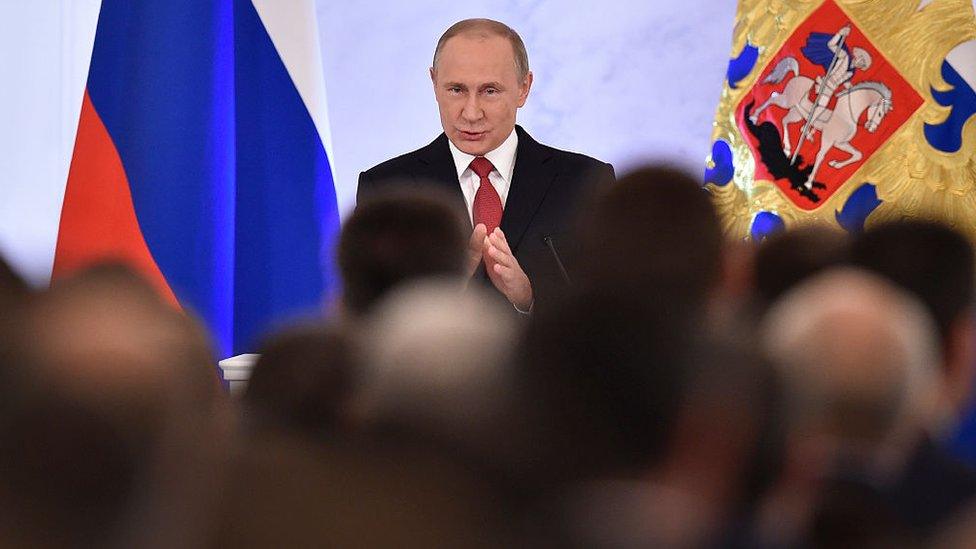
Vladimir Putin recently spoke of Russia's desire to "normalise" relations with the United States
Of course, the old Cold War talk could be ramped up again just as quickly. Shouting about external aggression and plots is a useful distraction after all, as the economy shrinks and living standards fall.
The Cubans have mastered that technique. And Russia's chief TV propagandist is obviously struggling to make the switch.
The day after Fidel Castro died, Dmitry Kiselyov hailed him as a hero on his weekly news show for having the guts to point those Soviet missiles at the United States back in 1962. The same presenter once uttered a stark warning on air to the United States, that Russia could reduce America to nuclear ash.
Clearly, it is not time to relax just yet.
But I cannot help thinking that maybe Mr Kiselyov - and a few others - would benefit from a ride into the countryside outside Havana to see those silos in the woods and talk to the Cubans who watched the missiles roll past their homes under cover of darkness.
They were the ones who realised that they had been pulled into the very epicentre of a political showdown that risked ending in their annihilation.
- Published29 November 2016
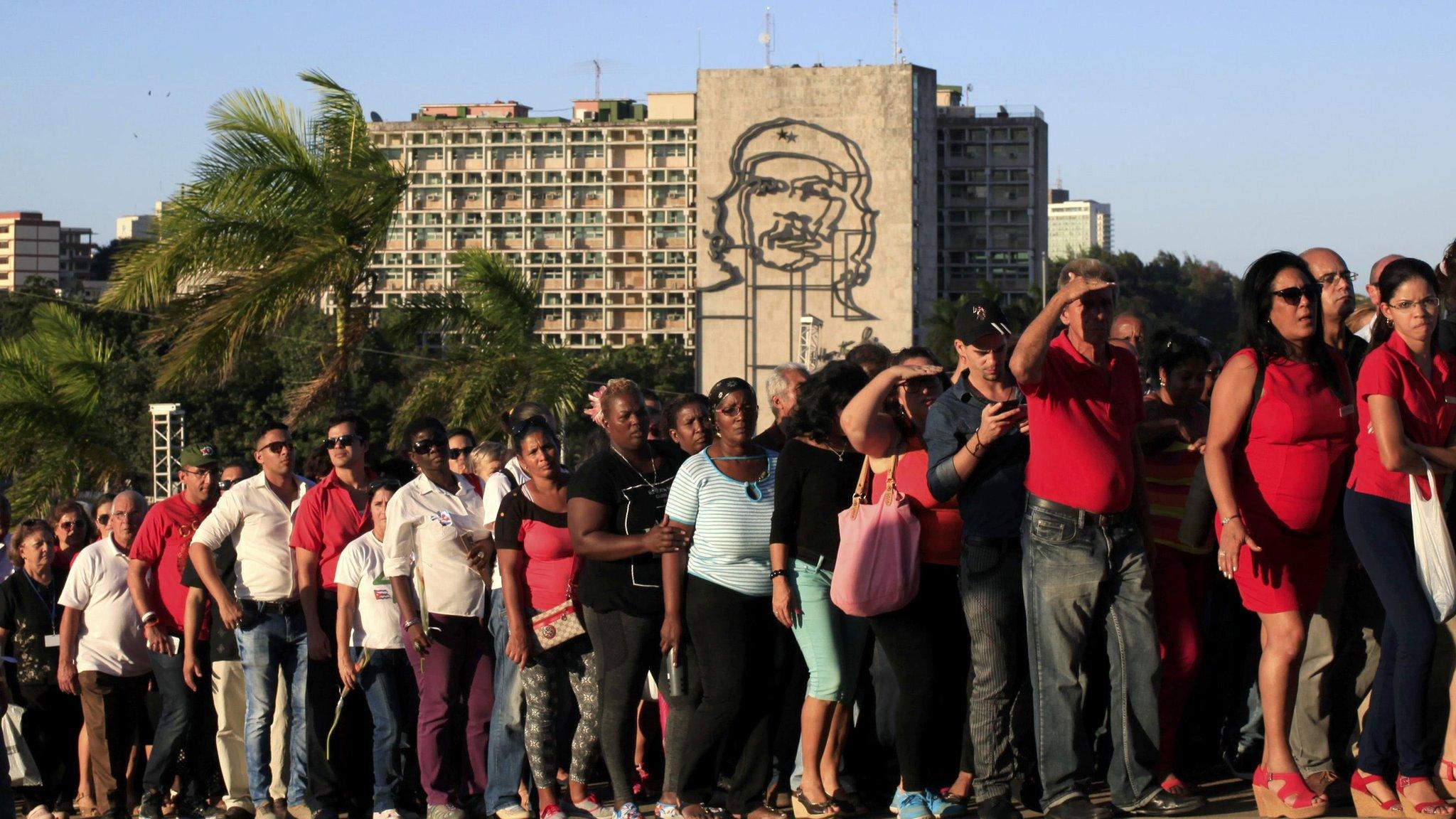
- Published26 November 2016
